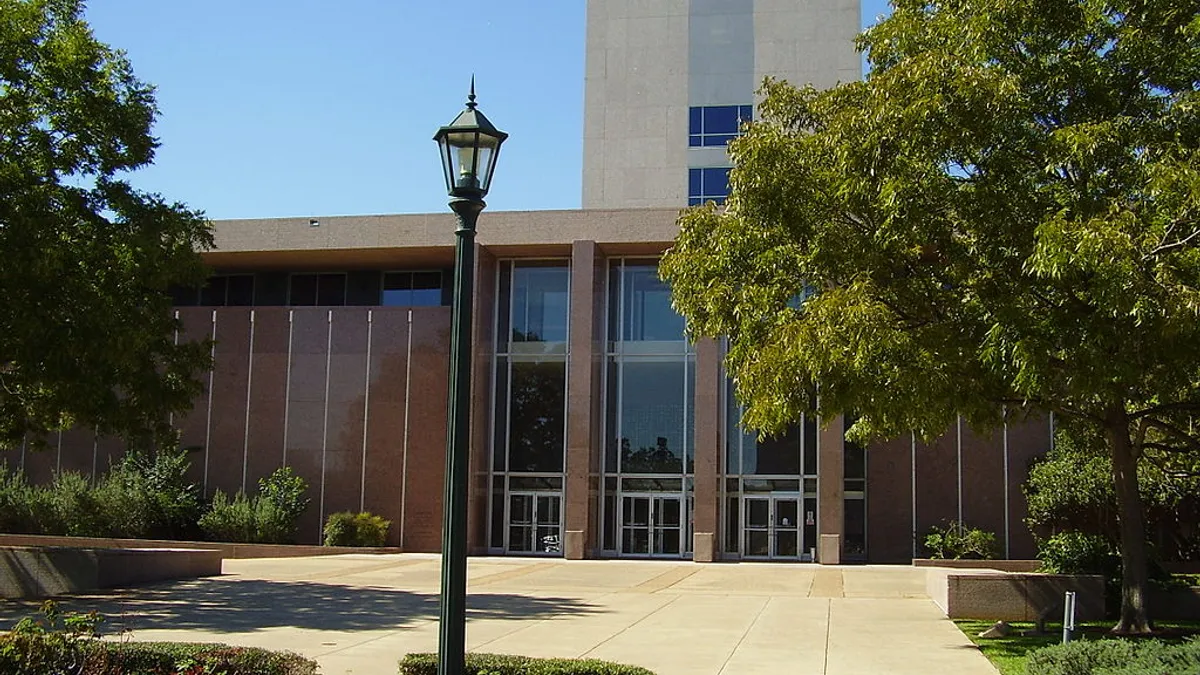Dive Brief:
- A Texas state law prohibiting workplace discrimination outlaws discrimination based on sexual orientation and gender identity, in keeping with the U.S. Supreme Court's Bostock decision (Tarrant County College District v. Sims, No. 05-20-00351 (Court of Appeals Fifth District of Texas at Dallas, March 10, 2021)).
- A former Tarrant County College employee sued her employer alleging that she was subjected to workplace discrimination after she revealed to a supervisor that she is gay.
- The appeals court noted that the Texas Commission on Human Rights Act was enacted to address discrimination and retaliation in the workplace as well as to coordinate and conform with Title VII of the Civil Rights Act of 1964, a federal law. The appellate court also explained that the trial court had decided the case four months before the Supreme Court ruled that Title VII forbids bias based on sexual orientation or gender identity. The appeals court concluded that, in order to reconcile the TCHRA with federal law, the TCHRA's prohibition on discrimination because of sex must include a prohibition bias based on sexual orientation and gender identity.
Dive Insight:
The Supreme Court held in June 2020 in Bostock v. Clayton County, Georgia that Title VII's prohibition on discrimination because of sex forbids an employer from engaging in workplace discrimination against sexual orientation and gender identity, even if those attributes are not explicitly mentioned in Title VII's statutory language, said Juan Hernandez, an attorney with Baker Donelson.
The High Court's landmark decision cleared up confusion in the federal appellate courts where about half of the courts had held that Title VII protections didn't apply to the gay and transgender community and the other half had ruled that it did. In addition, many states and some of the local jurisdictions also had rules on the books forbidding such bias. The end result was, as many described it, a messy patchwork of laws.
The Sims decision provides state-level protections for Texas LGBTQ workers, Hernandez wrote in a blog post for the firm. "Employers should be mindful that courts in other states could follow the Bostock ruling in interpreting state anti-discrimination laws if they have not done so already," Hernandez said. Texas was one of 27 states with no statewide employment non-discrimination laws protecting LGBTQ workers before this ruling, according to the Human Rights Campaign.
"Employers need to ensure their policies include protections consistent with these decisions. Employers need to also take the same steps required to maintain a workplace free of discrimination and harassment based on an employee's LGBTQ status," Hernandez suggested.












